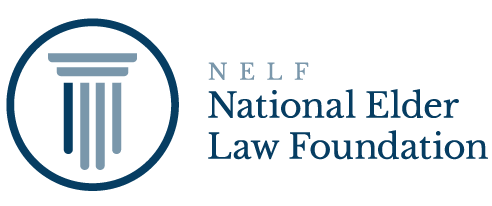IRA Protection Planning
What happens if you pass away with substantial funds still held in your IRA? Did you consider how to protect your IRA’s beneficiaries from excessive taxes, probate costs, and having the money exposed to their creditors? Here’s how your IRA beneficiary is unprotected and how you can plan to protect them.
Working for many years as you contribute part of your wages or salary to an IRA is one of the most popular methods of saving for retirement. After decades of contributions to the fund, the investment often grows to be a substantial financial resource.
IRA Taxation
Conventional IRAs permit tax-free contributions over many years until the funds are withdrawn in your elder years. Then, the law mandates that Required Minimum Distributions (RMDs) be made to you from the IRA, at which time you pay tax on the amount you receive. For Roth IRAs, the contributions are taxed at the time you deposit them into the IRA and the eventual distributions are tax-free. To minimize taxes due on conventional IRA distributions, IRA account owners can limit their annual distributions, but the distribution rate is based on your life expectancy. The calculation is designed to ensure that your IRA is fully paid within your lifetime.
Spousal and Non-Spousal Beneficiaries Pay Taxes on Inherited IRA
If your spouse is the beneficiary of your IRA at the time of your death, they may choose one of three different options in order to manage how the money is taxed:
- Designate themselves as the IRA account owner, in which case the IRA will only be taxed as they take distributions (except with a Roth IRA for which no distributions are taxable).
- Roll the inherited IRA into their own preexisting IRA, and have the amount of the RMDs adjusted to the spouse’s age, if younger than the deceased spouse.
- Be treated as the IRA beneficiary, keeping the amount of the taxable RMD pinned to the age of the deceased spouse’s age.
The spousal beneficiary’s inherited IRA also enjoys exemption from the reach of creditors.
Risks of Naming a Non-Spousal Beneficiaries of an IRA
Unlike an IRA owner or a spousal beneficiary, when a non-spousal beneficiary, like an adult child, inherits an IRA, there are risks to the funds that can be minimized with appropriate IRA planning. Some of the risks include:
- Accelerated mandatory distribution within 5 or 10 years (increasing tax exposure)
- Funds are subject to claims of the beneficiary’s creditors
- Beneficiary could spend the funds freely, even irresponsibly
- Inability to shield funds from unintended recipients
Trusts as IRA Beneficiaries Can Be a Solution
Naming a trust as the beneficiary of your IRA offers significant benefits to the IRA account owner and to beneficiaries, though there are also some disadvantages that took effect in 2020 after the enactment of the SECURE Act, formally titled the Setting Every Community Up for Retirement Enhancement Act of 2019.
Using a trust as the beneficiary of your IRA can produce these benefits:
- Gives you more control over how and when the trust’s beneficiary receives the distribution (within limits). For example, distribution can be delayed if a minor child is the intended recipient, or the rate of distribution can be set to prevent the funds from being squandered by an irresponsible spender.
- Allows you to ensure your children receive distribution in the event your spouse remarries.
- Enables you to name your grandchildren as ultimate beneficiaries in the event your child is involved in a divorce contest.
- Protects your child’s distributions from the child’s creditors.
- Allows control over charitable giving.
- You can name successive beneficiaries rather than let the first named beneficiary decide after receiving the inheritance.
Drawbacks of naming a trust as an IRA beneficiary include:
- Distribution required within 10 years (per the SECURE Act), except for eligible designated beneficiaries (spouse, minor children, some disabled persons, or less than 10 years younger than the deceased IRA owner).
- Accelerated distribution can mean less favorable tax treatment.
IRA Planning Is an Important Part of Estate Planning
Planning how to preserve the value of your hard-earned IRA contributions for those whom you love is an essential component of every estate plan. Even those who only own an IRA as their primary financial asset will benefit from consulting with an experience elder law attorney.
Planning is what protects your assets for your elder years and for those you love.
Find a Certified Elder Law Attorney (CELA) near you for details about protecting your assets.
